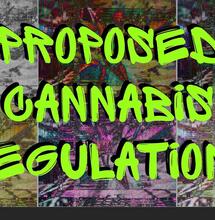Should Cannabis be Legalised?

The legalise cannabis lobby should be reeling from recent reports that show the negative impact of cannabis
The legalise cannabis lobby should be reeling from recent reports that show the negative impact of cannabis
a group of New Zealanders were studied over 40 years and the results show that the IQ levels of teenagers can be permanently reduced by the drug; and a report from California describes the failed promise of "Medical Marijuana".
Perhaps it is naïve of me to expect the legalise cannabis supporters to suddenly say "we were wrong" and all go home. This doesn't seem to happen when people adopt a confrontational position they believe in deeply.
But it has been fascinating to observe how the legalise cannabis lobby has dealt with the news that their drug of choice is bad for teens. Peter Reynolds of CLEAR (Cannabis Law Reform) is a former politician who has registered CLEAR as a political party. Judging on how he has turned this potentially devastating report to his advantage I would also say that he's also a PR genius.
This is how he headlined the news (that cannabis is damaging to teenagers) on the CLEAR website: "Institute of Psychiatry at Kings College London Confirm Cannabis is Safe for Adults."
"The vital and important point about this" writes Peter Reynolds, "is that it sheds light on the appallingly irresponsible policy of prohibition. Our governments are failing entirely to provide any protection to our children against cannabis dealers. All the evidence is that where cannabis is legally available to adults through a properly regulated system, use by children falls and age at first use increases."
This is a PR case study in how to avoid the impact of a negative report: focus on a positive element within the study (a statement by one of the authors saying "I'm fairly confident that cannabis is safe for over-18 brains but risky for under-18 brains") -- and then follow up with a fresh attack of your own.
All this sounds very convincing and is useful ammunition for all those casual users who believe that cannabis should be legalised. There are scores of other arguments in favour of legalisation: it could improve the quality of the drug on the street, it would bring in tax revenue and cut out the mafia, it's good for pain relief, it's less harmful than alcohol, it's widely used already and it's not addictive.
Before I started working for Castle Craig rehab clinic I was in favour of legalising cannabis. I had experimented with it at college, believed it wasn't addictive and liked the idea of taxing the drug and cutting out the criminals who profit from it. But when a journalist in London told me that "cannabis is the number one problem drug for psychiatrists" and that it can also cause psychosis, I started researching it.
Each one of the pro-cannabis arguments can be picked apart and demolished, every one of the studies they quote can be countered with other studies, but that doesn't really get us anywhere. Much more useful is to simply look at the families around us and ask them what impact cannabis has had on their loved ones.
My impression of the pro-cannabis lobby is that they seem unable to see any harm in their drug of choice, and some people even believe that it's good for you. But these same people would be the first to recognise that tobacco is really bad for you; ingesting all that poison into your lungs causes nothing but harm. But what's the difference between smoking a joint (which partly consists of tobacco) and smoking a cigarette? How can one be bad for you and the other not?
As regards the damage to young brains, the chairman of the alcohol and drug rehab clinic where I work, Peter McCann, recently told me that "the male brain doesn't stop developing until the age of 28 so I don't see why it is only teenage brains that are affected." He also reminded me that we treat a lot of addicts whose primary drug is cannabis.
I spoke to a lady in Brighton and she told me that her two grandchildren, both cannabis users, laughed off the report about the negative effects on teens: "That only applies to people who use skunk" they told her. This is typical of people who regularly use drugs: denial is the most common feature.
A former patient at Castle Craig Hospital told me that "cannabis will change a person. It distorts your vision of reality. It's the world's best procrastination drug. It also makes you paranoid."
UK government statistics show that over 20% of the population use legal drugs - tobacco and alcohol - but less than 10% of the people use illegal drugs. If cannabis were legalised and it was promoted as much as alcohol and tobacco are, can we assume that the proportion of users would double? Surely the the number of teen users would increase too once it became legally acceptable (laws restricting their access to tobacco and alcohol don't seem to have much effect).
http://www.huffingtonpost.co.uk 06/09/2012



